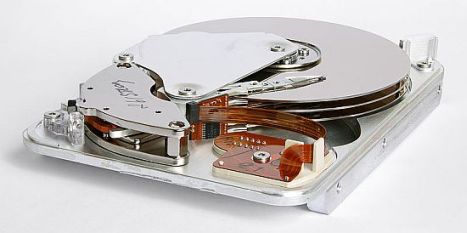
While all electronic gadgets will fail and break down at some time, hard drives are mostly the first part of a normal computer system that will fail. Hard drives, as we all know, consist of a lot of moving parts, and the spin rate of a normal hard drive can be as high as 7200RPM inside a computer. When parts are moving at that speed, even a single thing going off the blocks will cause irreversible damage.
Actually, there are two main categories of hard drive failure – physical and logical. Physical as the name suggests is because of some kind of a physical damage that might have happened to the hard drive. Physical failures can be categorized into two main failures – mechanical and electronic. Mechanical failure occurs when any of the high-precision internal moving parts break down, which normally happens if your laptop or desktop computer falls hard on the ground or you hit it with something. Before a mechanical failure renders a drive useless, there are some warning sounds. If you hear your hard drive making a clicking, clanking, scrapping or grinding sound, it means that the moving parts aren’t moving as seamlessly as they should and the best way is to shut down the computer immediately and try contacting a data recovery firm.
Physical electronic failure occurs when any of the electronic components of the hard drive has failed. All hard drives have a circuit board that allows it to interact with the computer system. This communication ranges from control position of the read/write heads or reading previously stored data. The computer then converts this stored data in binary data which is then recognizable by the computer and we get our data back on the screen in a form that allows us to read it. Any damage to the electronic components, which might occur if the hard drive is getting too hot and the fans aren’t properly functioning, will result in hard drive failure.
The other broader category of hard drive failure is Logical Failure. Logical failure occurs when information previously stored on the drive is not accessible or has been improperly organized. These failures are even more severe and are often described as file-system corruption. Reasons for such a failure include accidental formatting of the drive, deletion of important registry keys and other critical files and also the accidental downloading of a virus or malware-infected file. If your hard drive has a logical failure, the computer’s BIOS will be able to recognize the HDD but it may not boot. Another form of logical failure is due to expected fatigue on the recording medium, which happens over time. The drive’s are designed to store magnetic impressions and with age the process becomes slower and happens if the same hard drive is being used for decades.